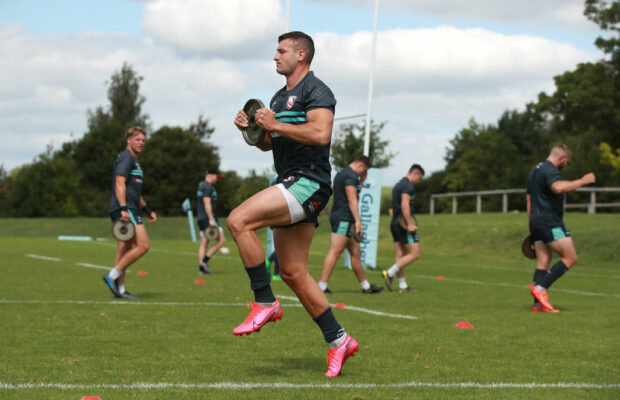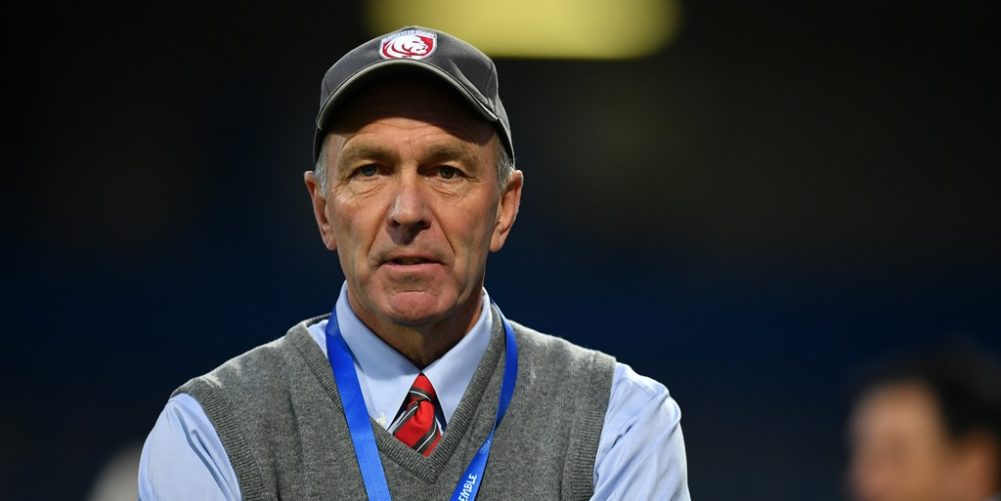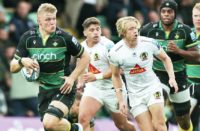Every rugby fan will have dreamt at one time of owning ‘their’ club but few achieve that ambition.
One who has is Martin St Quinton, owner of Gloucester Rugby since 2016 and an investor in the club for more than 20 years. The past five months have been tough for every club, and for the owners, so what is St Quinton’s perspective on this dreadful time?
“I don’t think any owner, anywhere in the world, will have enjoyed the past five months, and I wouldn’t yet talk about that in the past tense. The problems are with us until we can get our revenues back – we’ve had nothing coming in since the middle of March, but we’ve still had enormous wage bills, so we’ve had to cut our cloth accordingly.
“Happily, there’s much more optimism now that we will be able to restart in August, finish this season in October, and then, after a very short break, start next season. For the first time in a while the phones have been ringing at the club, with people wanting to book boxes, and get involved in sponsorship: the tough times aren’t over yet, but we can see light at the end of the tunnel.”
But through all the problems, the thrill of ownership remains. “It’s a great honour to own a rugby club, particularly if it’s one with a long history and very good support. It’s an opportunity to get involved in a sport you love, and to try to make a difference. You’re really only a caretaker for ten or 20 years, until someone else owns it – the club has been going for 150 years before you, and probably for another 150 after you’ve gone.
“I’m very involved in things. Clearly we have Lance Bradley as CEO, and George Skivington on the playing side, and while I’m conscious that I’m a non-executive chairman, it would be unusual if I wasn’t talking to them, or the finance director, on the phone, two or three times each day. Like any chairman I’m involved in the key appointments in the club, such as George becoming head coach.”
The compressed schedule for the new season raises issues over player welfare. Millionaire entrepreneur St Quinton says: “I don’t think it will be too bad, because a lot of academy players will be getting first-team experience – I can’t see any player playing three games in a row. Clubs will have to choose when to field their first team, and when that’s not possible.
“I think the younger players will get fantastic experience, and I don’t believe anyone needs to worry about player welfare – we’ll look after them. No one’s pretending it’s going to be full-on when we restart – it can’t be – but every club and every player is desperate to get out there again. In every season we have youngsters who shine, and they’re going to get even more opportunities – there are going to be Academy lads who will be starters in Premiership games.”
Bristol‘s Steve Lansdown has argued that the fans and broadcasters want to see the best – and therefore the most expensive – players in the Premiership, but is that necessarily the case? If a local derby, such as Gloucester v Bath, had teams containing a few Academy players, would it matter, or would the fans still support whoever was wearing the shirt?
“I couldn’t agree more. That’s the beauty of club rugby – in a lot of cases fans might not know until a few minutes before kick-off the make-up of the side, but they still come out to support their club. It’s nice for them if they can see the likes of Jonny May and Willi Heinz, but if they’re not playing it won’t stop them – they just want to see high-quality rugby and their team hopefully win.”

Ring-fencing is a huge, recurring issue so where does St Quinton stand on that one?
“I think it’s inevitable, it’s just a question of when, not if. It’s a ridiculous situation that there are 13 clubs in PRL, but every year one has to spend a season in the Championship – next time around it’s Saracens. “I’m not disputing the validity of their points deduction, and it is right that they go down, but it’s absurd that Newcastle have had to spend a season in the second tier. Next season Saracens will be playing Hartpury College – it’s a mad situation that just can’t continue. The gulf between the Premiership and what we pay our players, and the Championship, is enormous, and the result of the past few months is that it will have got even wider.
“I think it’s a case of knocking some heads together and deciding what’s best for the clubs, the players, and for the fans –it’s clearly ridiculous that a team gets relegated, wins every game by 40 points and comes back up again! A 13-team Premiership would be excellent, and, of course, you’d have two rest weekends because you have an odd number of teams. I wouldn’t mind if we went to 14 teams, so if another Exeter came along, with the fan base, the stadium, the Academy, and ticked all of the boxes, I would welcome them.”
The biggest issue in the Premiership has to be the losses run up by the clubs – can he foresee a situation where the league can be profitable?
“I can, but we all need to be more business-like about reducing our costs in all areas, particularly player salaries – we’ve always allowed that to run ahead of our revenue. Salaries have been out of control for a while, and Coronavirus simply exposed that.
“At the same time we need to build up our revenues, and easily the biggest revenue line is media rights. We all feel that’s an area that’s hugely undervalued at present, and we believe we can offer a really exciting product that the media companies will want to buy.
“If we can increase our media revenues then that goes a long way towards helping the situation, and helping us to break-even or become profitable. Alongside that there are things we need to do locally: improve the matchday experience for fans, which will drive up attendances, drive additional conference revenue, and so on.”
The recent changes to the salary cap will lead to a reduction from two marquee players to one, but not until 2022-23.
“I wouldn’t have marquee players, as I don’t think it’s good for the atmosphere within a club. If you want a highly-paid international player then by all means employ him, but it should be within the cap.
“In broad terms the PRL model works, but it inevitably gets stressed from time to time when the club game and the international game rub up against each other. PRL and the RFU regard each other as partners, but there is also a conflict between us, because the RFU and World Rugby quite rightly try to promote international rugby, whereas we’re trying to promote the club game. Sometimes those two things are complementary, but at other times they compete.”
Can the much-discussed global calendar ever be achieved and isn’t it the north simply bailing out the south?
“Sometimes, if we’re trying to grow the global game, the stronger countries should help the less financially well off. Without help some of the emerging countries just won’t make it – it’s good for everyone to have a stronger Japan, Georgia, Argentina, Fiji, and so on.’
What does St Quinton believe are the big issues facing the Premiership?
“We have to focus on ring-fencing, which has huge consequences for player welfare and a club’s finances, and overall financial sustainability. They are the keys.”
COLIN BOAG























